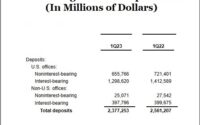Here are the major business provisions left out during the year-end sprint in Congress
While Senate Majority Leader Chuck Schumer (D-NY) hailed the bill to avert a government shutdown “one of the best omnibus packages in decades,” a long list of provisions the business community wanted were left on the cutting room floor during the harried final sprint to pass that bill and other measures to close out 2022.
Due to bad luck or timing or last-minute hangups, issues from key tax code provisions to cannabis banking to the debt ceiling all will end the year unaddressed. In some cases, the punting of these issues to 2023 comes just weeks after optimism had been high that they were set to be included.
The massive 4,000-plus page government funding was passed by Congress on Friday and will be signed into law by President Biden in the coming days. Congress’s other major end-of-year effort was the annual National Defense Authorization Act, which passed last week.
Here are a few of the closely-watched business provisions that got left in the cold during the final negotiations and will face starkly different political dynamics next year when Republicans take control of the House on Jan. 3.
Tax changes delayed
As recently as last week, lawmakers had been deep in negotiations around a so-called “tax extenders” bill that would have avoided changes to the tax code for 2023.
One high priority item for the business community concerned the taxes companies pay when they buy new equipment or invest in research and development. In 2017, then-President Trump signed the Tax Cuts and Jobs Act, which included these business-friendly changes, but had a built-in expiration date of Dec. 31, 2022.
Now that expiration date is imminent and the National Association of Manufacturers recently estimated that if the requirement is not eventually reversed, the U.S. economy could lose 263,382 jobs and experience an $82.39 billion hit to GDP in 2023.
The negotiations got bogged down over a Democratic idea to extend the R&D provisions while, at the same time, re-instituting the expanded Child Tax Credit.
In an event last week with Punchbowl News, Senate Finance Committee Chairman Ron Wyden (D-OR) said he was supportive of some of the business provisions, but “I also feel very strongly about the Child Tax Credit and I think that is an opportunity for a 1-2 punch that will better America.”
In the end, neither idea was included.
No major legislation on energy, cannabis banking, immigration and more
Also not included in the final sprint were a series of bills that would have affected sectors from cannabis to energy.
Perhaps the most high-profile idea to fall short was a long-delayed bill to make it easier for cannabis companies to access the U.S. banking system — known as the SAFE Banking Act. Banking access is severely limited for these companies because marijuana remains illegal at the federal level.
In October, Schumer had said lawmakers were “very close” to a deal that would pair the banking legislation alongside criminal justice changes for drug offenders. But negotiations broke down with the bill failing to be included in either of the two end-of-year bills.
Rep. Ed Perlmutter (D-CO), who is retiring next week and pushed hard for cannabis banking, said during a recent Yahoo Finance Live interview before the effort failed: “I’ve been disappointed before and the industry has been disappointed before.”
Also off the table for now are a bill to reform the energy permitting system championed by Sen. Joe Manchin (D-WV) and bipartisan immigration negotiations.
The lack of action on immigration comes after Labor Secretary Marty Walsh recently told Yahoo Finance that the business community constantly brings up the issue and a lack of skilled workers during his travels.
Lawmakers “have to look at our immigration system, it’s a threat to our economy,” Walsh said.
Sen. Kyrsten Sinema (I-AZ), one of the negotiators trying to reach a bipartisan deal on immigration, promises that talks will be “coming back strong” next year.
Another big-ticket issue punted to 2023 was the looming debt ceiling. The U.S. government is set to lose its ability to pay its bill at some point next year and Democratic lawmakers had hoped to take the issue off the table.
“It will get done, but there’s going to be a lot of drama around that, which could lead to market volatility,” Stifel Chief Washington Policy Strategist Brian Gardner recently predicted of the coming debt limit talks. He added there is a chance that those negotiations could also help spur progress on other stalled topics like immigration.
What did get across the finish line for business
Nonetheless, the flurry of lawmaking to close out 2022 did secure a series of provisions that will touch the business community.
For example, big changes to the retirement system will help many business’s employees such as automatic enrollment into retirement plans . The bill also would make it easier for small businesses to offer retirement plans and allow more part-time employees at companies of all sizes to enroll.
The bill also includes ideas that may help younger people save more earlier in life such as a novel ideas to link student loans and saving for retirement as well as new rules to help people save for emergencies.
Congress also took some actions on big tech. A bill called the Merger Filing Fee Modernization Act is included in the spending deal and is being described as the first strengthening of antitrust law since 1976.
House Judiciary Committee Chairman Jerrold Nadler (D-NY) recently said it will “make modest, but important, improvements to modernize our antitrust system and to help protect competition.”
Lawmakers are also poised to ban TikTok on U.S. government devices.
Still, other big tech efforts, like a bill to force big tech companies to pay news organizations a larger share of ad revenues, fell by the wayside in recent weeks. An even more ambitious bill to rein in big tech companies also stalled this summer amid a flurry of lobbying from big tech CEOs.
Lawmakers also are set to enact a range of other new laws from a bill increasing funding for veteran health care to $45 billion in new money for Ukraine and more.
As for the issues that were pushed into next year, “I think it’s going to be a lot more productive than people think,” Schumer said Thursday afternoon of what he expects from Congress in the years ahead, adding that the debt ceiling is a big issue, which now “must be done in a bipartisan way.”
Ben Werschkul is a Washington correspondent for Yahoo Finance.
Read the latest financial and business news from Yahoo Finance
Follow Yahoo Finance on Twitter, Facebook, Instagram, Flipboard, LinkedIn, YouTube, and reddit.
[ad_2]
Source link


